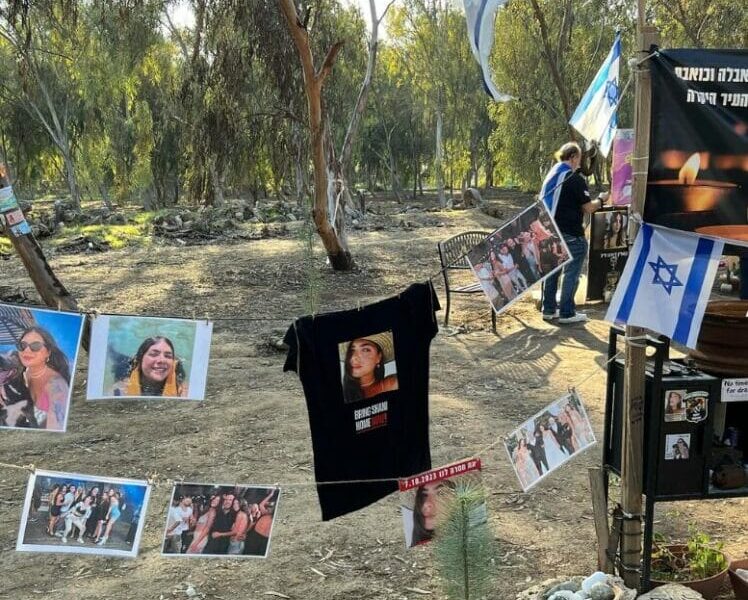It was the best of times, it was the worst of times … it was the season of Light, it was the season of Darkness, it was the spring of hope, it was the winter of despair …” Thus wrote Charles Dickens in A Tale of Two Cities. I think of those words as we approach Yom HaShoah (Holocaust Remembrance
Day), Yom Hazikaron (Israel’s Memorial Day) and Yom Ha’atzmaut (Israel Independence Day).
Perhaps a better phrase would relate the dichotomy of happiness and sadness we go through here in Israel as we honor these days every spring. They are times of soulful mourning and silly celebrating. Maybe it’s an analogy of life in Israel – great highs and profound lows, flaring temperaments and infinite tenderness. And I suspect that I, the relative newcomer here, will never be able to fully absorb the experience. Yom HaShoah starts on the evening before the day of remembrance.
Restaurants usually close, no celebrations take place and the entire nation more or less takes a time out. At 11 the next morning, a siren is heard throughout the country. Traffic stops – literally. People bring their cars to a halt – whether on local side streets or main highways – and they get out and stand at attention for the full two minutes of the siren’s wail. The rest of the day is spent as you wish – businesses are open but radio music is somber and the television stations broadcast only Holocaust-related programs. There are interviews with survivors, movies of concentration camp experiences, touching accounts of families pulled apart and families reunited. It is a 24-hour period that pulls at the heartstrings – and pulls and pulls.
One week later we again experience a day of sorrow – a day of remembrance for the men and women, the boys and girls who have lost their lives due to war or terrorism. Once again the siren, the halted traffic, the sadness permeate the length and breadth of the country. One television channel runs continuous broadcasts of the names of the fallen and the dates of their death. It is a morbid reminder of the history of this country. Tune in early in the day and you hear the names of those lost in the early years – the date reveals which war or confrontation or terrorist act they were a victim of. Tune in later on and you see who has died in recent times. It’s eerie and terribly sad.
And then, at 8 in the evening, it all changes. It’s time to party! People run out to the streets or get in their cars and start driving all over the country to celebrate the declaration of Israel’s independence by David Ben-Gurion on May 14, 1948. Big parties, loud music, smoky barbecues and the inevitable fireworks abound. Traffic on the following day is a nightmare because it seems everyone is heading off to some spot to picnic with family and friends – some actually stopping on the roads and doing it right there!
My earliest recollection of Yom Ha’atzmaut was from the early ’70s when I was a student at Tel Aviv University. We took a bus from the dorms to the “big city,” got off at Kikar Malchei Yisrael (now Rabin Square) and spent the evening joining thousands of others laughing and hitting people over the head with plastic hammers that made a bopping sound. I cannot recall the sad days from that year.
But times have changed. They say the most dramatic shift took place in 1973 during the Yom Kippur War. Too many lives were lost, losses that touched every family. My friends tell me that since those days, it is very difficult to make the switch from sad to happy. It seems false and unworthy to jump into party mode after a 24-hour period of recalling friends and family members who sacrificed their lives for the country. It is indeed hard to imagine – 18-year-old boys in the prime of adolescence changing into uniforms, armed with weapons, going to the front to protect and defend their country. Or young girls sitting in cafes having their lives suddenly obliterated due to one outrageous act of terror.
I, like other residents, follow the customs of my adopted country. I stand at silent attention when the siren goes off. I think about the 6 million murdered and cannot fathom it. I watch the names on the TV screen and I recall the faces of the people I’ve known whose lives have been cut short, and I think of their families still suffering. And then, like everyone else, I get ready to party.
Life in Israel.
Anne Kleinberg, author of Menopause in Manhattan and several cookbooks, left a cushy life in Manhattan to begin a new one in Israel. Now she’s opened a boutique bed and breakfast in her home on the golf course in Caesarea. For details, visit annekleinberg.com and casacaesarea.com.





